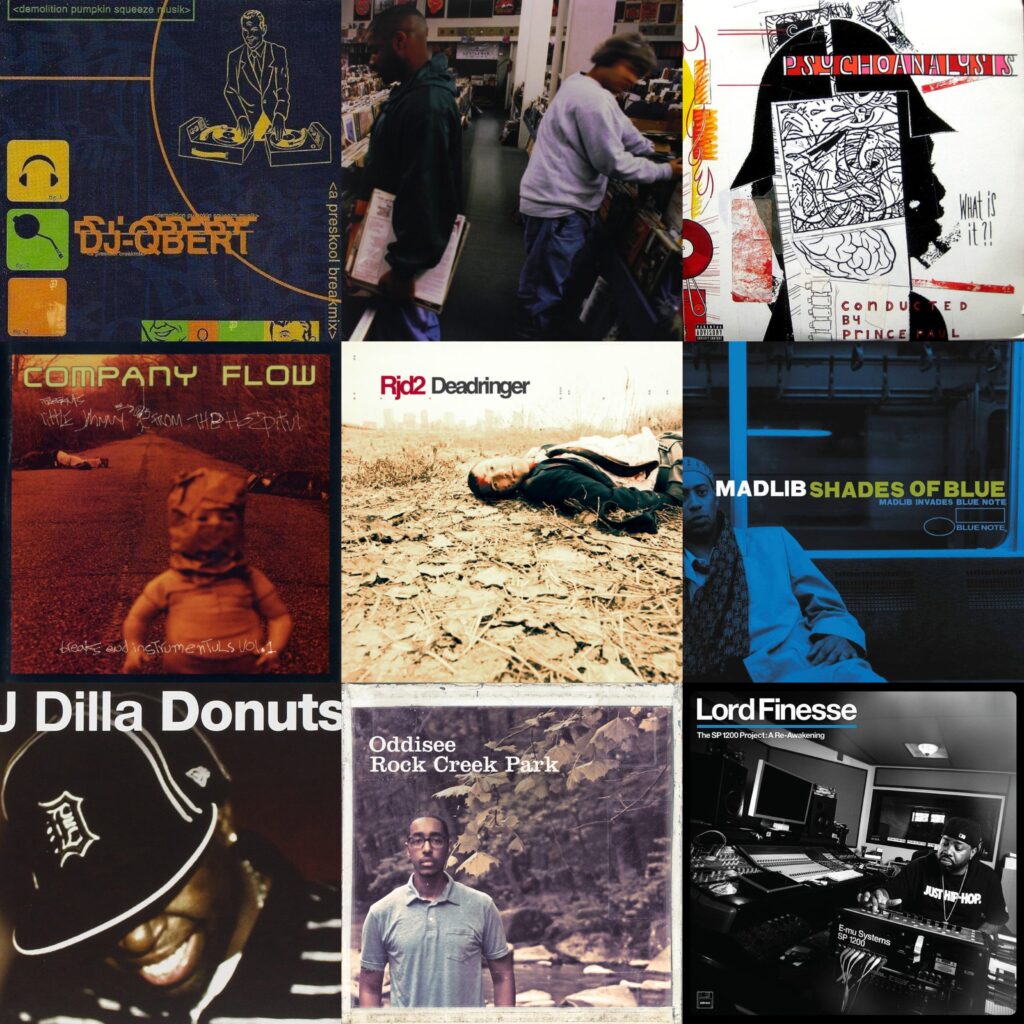
Hip Hop music is known for its lyrics, storytelling, and powerful social commentary, but it is the beats that first capture our attention and keep us hooked. The combination of drums, basslines, and samples creates a unique sound that has influenced music genres worldwide. However, there are times when the absence of lyrics allows the music to shine brighter, showcasing the talents of producers and DJs alike. Instrumental Hip Hop has been around since the early days of Hip Hop, with artists such as Grandmaster Flash, Afrika Bambaataa, and DJ Shadow paving the way for a new genre of music. Over the years, instrumental Hip Hop has grown and evolved, with producers experimenting with different sounds and samples to create music that stands on its own.
In this article, we have compiled a list of 20 must-hear instrumental Hip Hop albums. These albums showcase the diversity and creativity of instrumental Hip Hop and provide a unique listening experience that is not to be missed. From classic albums such as J Dilla’s Donuts and DJ Shadow’s Endtroducing… to more recent releases like Knxwledge’s 1988, this list covers a wide range of styles and sounds. Each album on this list has its own unique character and tells a story without the need for vocals.
But why listen to instrumental Hip Hop? For one, it allows the listener to focus on the music itself, without any distractions from the lyrics. It also allows for a more personal interpretation of the music, as the absence of lyrics allows the listener to create their own story and emotions based on the sounds they hear. Instrumental Hip Hop can also serve as a great background soundtrack for studying, working, or simply relaxing.
The albums on this list are not in any particular order other than their release year, as they all offer something unique and valuable to the world of instrumental Hip Hop. Some are groundbreaking and have influenced the genre as a whole, while others are lesser-known gems that deserve more recognition. This list of 20 must-hear instrumental Hip Hop albums provides a glimpse into the diverse and exciting world of instrumental Hip Hop. Whether you are a longtime fan of the genre or a newcomer, these albums offer a unique and enjoyable listening experience that is not to be missed.
DJ Q-Bert - Demolition Pumpkin Squeeze Musik (1994)
DJ Q-Bert, born Richard Quitevis, is a renowned turntablist and producer hailing from San Francisco, California. Q-Bert’s innovative techniques and mastery of the turntables have earned him multiple DMC World DJ Championship titles and cemented his status as one of the greatest scratch DJs of all time. He is a founding member of the legendary turntablist group, the Invisibl Skratch Piklz, and has collaborated with numerous notable artists in the Hip Hop community, including Dr. Octagon, Del the Funky Homosapien, and DJ Shadow.
DJ Q-Bert’s Demolition Pumpkin Squeeze Musik, released in 1994, is a classic turntablism album that pays homage to the B-boy breaks that started Hip Hop in the mid-70s. After competing in the DMC world battles, Q-Bert set out to release his first mixtape. His idea was to bring back the raw, original B-boy breaks and update them with the newer DJ skills of the mid-90s.
Throughout the mix, Q-Bert sprinkles sound bites from influential movies such as Style Wars, Wild Style, and The Warriors, as well as random cartoons like The Jetsons and Spiderman. Video game scratches from Street Fighter 2 and more are also incorporated, adding to the overall feel of the album. The samples on this album come from a wide range of artists, including Rush, James Brown, The Honey Drippers, Jackson 5, Roxanne Shante, Too Short, The 5 Stairsteps, Bo Diddley, and many more. These samples are transformed into something entirely new, with Q-Bert’s impeccable scratching skills taking them to new heights.
The album is a 60-minute non-stop scratching and breakbeats extravaganza, with Q-Bert using classic beats to incorporate with his scratching and sampling. The sound bites from movies and cartoons add a fun and playful element to the album, while the video game scratches bring a unique and futuristic feel.
While the focus of the album is primarily turntablism and not self-crafted beats, Demolition Pumpkin Squeeze Musik still falls squarely in the ‘instrumental’ category and fully deserves a high placing on any list of the best-ever Hip Hop instrumental albums. This is an obscure but incredible album that is often overlooked when it comes to best-ever Hip Hop instrumental albums – or even best-ever Hip Hop albums, period.
DJ Q-Bert’s Demolition Pumpkin Squeeze Musik is a must-hear album for anyone who loves turntablism and classic Hip Hop breaks. The album showcases Q-Bert’s immense talent as a DJ, and the samples used are transformed into something truly unique and unforgettable. This is one of the best pure breaks-and-beats records ever.
DJ Krush - Krush (1994)
DJ Krush’s self-titled debut album, released in 1994, is a pioneering work in the realm of instrumental Hip Hop. The Japanese DJ and producer incorporates elements of jazz, funk, and ambient music to create a distinctive sound that is both atmospheric and deeply groovy.
Krush opens with the “AM 300 Tag”, an ethereal and dreamy intro that sets the tone for the rest of the album. Throughout the record, Krush employs his signature scratch technique to add texture and depth to the beats. The intricacy and depth of the production become more apparent with each listen, revealing new layers and textures with each spin.
Krush is a stunning debut, an album that combines technical skill with a deep appreciation for music history and a keen sense of atmosphere. While DJ Krush has gone on to release many other great albums throughout his career, this debut remains one of his best and a high-water mark for the genre.
DJ Shadow - Endtroducing.....(1996)
DJ Shadow’s debut album, Endtroducing….., is a milestone in the history of instrumental Hip Hop. Released in 1996, it revolutionized the use of sampling in Hip Hop and set the bar high for future instrumental albums. DJ Shadow, born Josh Davis, was a pioneer of the instrumental Hip Hop genre. He gained recognition for his ability to create intricate and innovative beats and his use of sampling as a major component of his music.
Endtroducing….. is a fusion of Hip Hop, jazz, and electronic music that flows seamlessly from track to track, creating a cohesive and immersive listening experience. DJ Shadow’s skillful use of samples from a wide range of sources, including old jazz records, classic rock albums, and obscure spoken word recordings, creates a sonic tapestry that feels like a journey through time and space.
Endtroducing….. has been described as a “sonic masterpiece,” and it’s easy to see why. It’s a rich and complex album that rewards repeated listens. From the haunting intro of “Best Foot Forward” to the epic finale of “What Does Your Soul Look Like (Part 1),” every track tells a different part of the story, creating a sonic narrative that captures the imagination.
The album’s influence can be heard in the work of countless artists who followed in DJ Shadow’s footsteps. Its impact on the instrumental Hip Hop genre is undeniable, and it paved the way for future artists to explore new sonic territories. Endtroducing….. is a must-listen for any Hip Hop fan who wants to dive into the rich and diverse world of instrumental Hip Hop. It’s an album that continues to inspire and captivate listeners more than two decades after its release.
Prince Paul - Psychoanalysis (What Is It?) (1996)
Prince Paul is an iconic figure in the Hip Hop pantheon, having been involved in a number of classic albums such as Stetsasonic’s On Fire (1986), De La Soul’s 3 Feet High and Rising (1989) and De La Soul is Dead (1991), Gravediggaz’ 6 Feet Deep (1994), and his own A Prince Among Thieves (1999). His first solo album, 1996’s Psychoanalysis (What Is It?), is a sonic exploration of various mental disorders, with every track featuring spoken word samples related to psychological themes.
The album is not strictly instrumental, as there are some songs with rappers featured, and every track features spoken word samples. However, the album cannot be classified as a rap album either. The psychological concepts explored in the album are merely the shell of the album, and Prince Paul explores them in subtle ways, including outright parodies of certain types of Hip Hop and less ambitious instrumental tracks that seem to exist simply as examples of attentive crate-digging. The album is a complex and layered work, not a causal listen but an intriguing piece of work that gets better with each spin.
Psychoanalysis (What Is It?) is a sonic head-trip that showcases his more leftfield and cerebral sonic tendencies. It is a captivating case study of the experimental genius of one of Hip Hop’s greatest sonic visionaries. Prince Paul’s legacy endures well into the twenty-first century due to his ingenuity, which was based on defying conventions and breaking rules.
DJ Vadim - U.S.S.R. Repertoire (The Theory Of Verticality) (1996)
DJ Vadim is a Russian-born DJ and producer who has been making a name for himself in the underground Hip Hop scene since the mid-1990s. His unique blend of boom-bap, funk, jazz, and electronic music has earned him a devoted following. On his debut album, U.S.S.R. Repertoire (The Theory Of Verticality), Vadim shows off his impeccable attention to detail and mastery of beat-making over the course of 26 tracks. The album’s forbidding atmosphere is balanced by subtle funkiness, creating a unique sound that draws on the best of abstract Hip Hop.
Vadim skillfully weaves in snippets of recognizable verses from Hip Hop legends such as O.C., KRS-One, and Ultramagnetic MCs, creating a treasure hunt for knowledgeable heads to identify them all. But he doesn’t rely solely on samples; his drum selection is also top-notch, with a wide range of sounds that still maintain the album’s cohesive vibe.
The album’s title, U.S.S.R. Repertoire (The Theory Of Verticality), is a nod to Vadim’s Russian heritage and his approach to beat-making. The verticality he refers to is the layering of sounds and samples to create a rich, textured sound that can be appreciated on multiple levels. It’s a testament to his skill as a producer that he is able to achieve this level of complexity without ever sacrificing the album’s overall cohesiveness.
Overall, U.S.S.R. Repertoire (The Theory Of Verticality) is a dope debut from one of the most unsung producers of his generation. Vadim’s attention to detail and ability to balance atmosphere and funk make for a captivating listening experience, and his use of vocal samples adds an extra layer of intrigue. It’s a must-listen for any fan of abstract Hip Hop or instrumental beats and a testament to the enduring appeal of DJ Vadim’s music.
Rob Swift – Soulful Fruit (1997)
Rob Swift’s debut solo album, Soulful Fruit, is an iconic turntablism album. Released on Stones Throw Records in 1997, the album showcases Swift’s skills as a producer, as well as his ability to cut, scratch, and mix with the best of them. Swift was a founding member of the DJ collective The X-Ecutioners, along with Mista Sinasta and the late Roc Raida, both of whom also produced tracks on Soulful Fruit.
The album is a showcase of Swift’s mastery of the turntables. The beats are excellent, with each track featuring intricate scratching and mixing. The standout track on the album is undoubtedly the 14-minute live track, “Rob Swift vs. Rahzel.” In this track, Swift challenges legendary beatboxer Rahzel to imitate his routines. Rahzel transforms into “Super DJ” and answers Swift’s every move, resulting in an epic battle of beats that is both impressive and entertaining.
Soulful Fruit is not just a display of Swift’s technical skills, but also his ability to create soulful and funky tracks. The album is a mix of original compositions and reworked samples that seamlessly blend together to create a cohesive and enjoyable listening experience. The production quality is excellent, with each track sounding crisp and clean. Soulful Fruit is a testament to Swift’s talent and his contributions to the art of turntablism. The album has been highly influential, inspiring many other DJs and turntablists to push the boundaries of what is possible on the turntables. If you are a fan of turntablism or just appreciate excellent production and technical skills, then Soulful Fruit is a must-listen.
Mix Master Mike - Anti-Theft Device (1998)
Mix Master Mike, is a DJ and turntablist known for his innovative scratching techniques and electrifying live performances. He was born on April 4, 1970, in San Francisco, California, and he began his music career as a mobile DJ and eventually joined the influential DJ collective The Invisibl Skratch Piklz in the 1990s. He gained further notoriety for his turntable skills when he joined the Beastie Boys as their touring DJ in 1998 and contributed to several tracks on their album Hello Nasty. , most notably “Three MCs and One DJ“.
Mix Master Mike’s debut album, Anti-Theft Device, is a dope showcase of his turntabling skills that cemented his place among the greats of the art form. As a world-champion turntable battler, Mix Master Mike’s skills are on full display in this album. The first half of the album is like an old-school Hip Hop party that takes place in the Beastie Boys’ neighborhood, complete with furious high-energy scratching, cartoon imagery, and bratty jokes.
The second half of Anti-Theft Device is where things get interesting. The album switches from wild, full of crazy vocal samples and beat switches to a smoother, more thoughtful approach. The production is pretty cool too – Mix Master Mike doesn’t just pick random breaks, it’s all his own productions. MMM’s furious scratching is mind-blowing, and the samples are expertly chosen and edited to create a cohesive, enjoyable listening experience. The vocal samples are eclectic, ranging from military speeches to science-fiction warnings to instructional LPs, adding to the album’s surreal, otherworldly feel.
The album’s title is fitting, as Mix Master Mike’s turntablism is a force to be reckoned with. He proves that the turntable is not just a tool for playing music but a musical instrument in its own right. His scratching is lightning-fast, and his beat juggling is mind-bending. The album is a showcase of his ability to manipulate sound and create something entirely new and exciting. Anti-Theft Device is an engaging one-hour turntablist journey that’s sure to leave listeners amazed and wanting more.
DJ Qbert - Wave Twisters, Episode 7 Million: Sonic Wars Within The Protons (1998)
One of Qbert’s most celebrated projects is the album Wave Twisters – Episode 7 Million: Sonic Wars Within The Protons, which was released in 1998. The album is a concept album and tells the story of a group of heroes who battle evil forces in outer space. The album features a mix of old-school hip-hop beats and futuristic electronic sounds, with Qbert’s trademark scratching layered over the top.
The album is filled with complex beats and intricate scratching patterns, as well as sound effects and vocal samples that help to tell the story of the album. Qbert’s use of different sound effects and samples to create a cohesive narrative throughout the album is particularly impressive, and shows his skill as a producer as well as a DJ.
Another standout feature of Wave Twisters is the album’s unique visual component. To add to the music, Qbert also created a feature-length animated film to accompany the album. The film was created in 2001, using a technique called “scratch animation,” which involves drawing images directly onto a vinyl record and then using a turntable to spin the record and animate the images. The result is a visually stunning and highly creative film that perfectly complements the music of the album.
Despite the album’s complexity and experimental nature, Wave Twisters is also a highly accessible and enjoyable listen. The album’s beats are infectious and catchy, and Qbert’s scratching is always on point. The album also features a number of guest turntablists, including Beastie Boys’ unsung Mix Master Mike.
Wave Twisters – Episode 7 Million: Sonic Wars Within The Protons is an incredibly innovative and creative album that showcases DJ Qbert’s unparalleled talent as a scratch DJ and producer. The album’s mix of old-school Hip Hop and futuristic electronic sounds, as well as its unique visual component, make it a must-check for fans of Hip Hop, electronic music, and experimental art in general.
Company Flow - Little Johnny From The Hospitul: Breaks & Instrumentals Vol.1 (1999)
Company Flow, consisting of El-P, Bigg Jus, and Mr. Len, was formed in 1992 in New York City. The group released its debut album, Funcrusher Plus, in 1997, which was critically acclaimed for its groundbreaking production and abstract, socially conscious lyrics, and is now universally recognized as a vital underground Hip Hop album. In 1999, the group released Little Johnny From The Hospitul: Breaks & Instrumentals Vol.1.
Little Johnny... is not an easy-listening album. El-P and Mr. Len’s futuristic beats are ahead of their time, and the album remains innovative even today. The album is dark and murky, and some listeners may find it difficult to open up to, but those who do will find that it is filled with highlights, such as “World of Garbage,” “Bee Aware,” “Happy Happy Joy Kill,” “Shadows Drown,” and “Suzy Pulled a Pistol on Henry.”
What makes this album stand out is that it is not just a collection of beats, but a cohesive album with a clear concept. The samples used throughout the album are all taken from the Little Johnny comic book series, which follows the misadventures of a troubled child. The album’s title and artwork also reference the comic book.
While El-P and Bigg Jus’ absence as MCs on the album may disappoint some fans, Little Johnny... should be appreciated for what it is: a brilliant instrumental album that showcases Company Flow’s production skills. The album’s experimental nature and innovative production make it a must-listen for any fan of edgy instrumental Hip Hop.
Pete Rock - Petestrumentals (2001)
Pete Rock is one of the most influential producers in the history of Hip Hop, known for his smooth and soulful beats that have helped shape the genre since the early 1990s. Born Peter Phillips in the Bronx, New York in 1970, Rock began his career as a DJ before transitioning to producing. He first gained attention in the early 1990s as one half of the duo Pete Rock & CL Smooth, whose classic albums Mecca and the Soul Brother (1992) and The Main Ingredient (1994) are considered among the best records in Hip Hop ever.
After the breakup of Pete Rock & CL Smooth, Rock continued to produce for a wide variety of artists, including Nas, Public Enemy, and Run-DMC. In 2001, he released Petestrumentals, his second solo album and a showcase of his skills as a beatmaker.
Petestrumentals is an excellent instrumental album that showcases Pete Rock’s skills as a beatmaker. It is a perfect example of his signature sound, which combines jazzy horns and soulful samples with hard-hitting drums and basslines. While Rock’s previous album Soul Survivor (1998) featured guest emcees providing vocals, Petestrumentals proves that his beats are strong enough to stand on their own.
In conclusion, Petestrumentals is a must-have for any fan of classic Hip Hop. Pete Rock’s skills as a producer are on full display here, and the album is a testament to his enduring legacy in the genre. Mixed and mastered to perfection, the tracks sound crisp and fresh, even 20 years after the album’s release.
RJD2 - Deadringer (2002)
Deadringer, the debut studio album from the Columbus, Ohio-based producer, and DJ RJD2 is an essential instrumental Hip Hop album. RJD2’s background as a producer for artists on El-P’s avant-garde Def Jux label and as part of respected groups like Soul Position is evident in the album’s well-crafted beats, perfectly-timed scratches, and beautiful soundscapes.
While the album features vocal contributions from Blueprint, Jakki da Motamouth, and Copywrite on three tracks, the majority of the album is completely instrumental. Despite this, Deadringer is far from monotonous, as it offers a diverse range of musical styles, from the funky opener “The Horror” to the moody blues of “Smoke & Mirrors” to the soulful sound of “Good Times Roll Pt.2.” The album’s variation is well-balanced, resulting in a consistent and powerful package.
Although the album cover might be a little gruesome, don’t let that throw you off. Deadringer is a masterpiece that deserves a spot in any music lover’s collection. With its great beats, engaging soundscapes, and overall musicality, it is an impressive debut that showcases RJD2’s immense talent as a producer and DJ.
Madlib - Shades Of Blue (2003)
Madlib’s prolific career as a producer, MC, and DJ is marked by an impressive body of work. His collaborations with MF DOOM as Madvillain and with J Dilla as Jaylib are revered as classics, and his contributions to the works of artists like Talib Kweli, Percee P, Guilty Simpson, and Freddie Gibbs have earned him a reputation as one of the most versatile producers in the game.
Among his many instrumental solo releases, Shades of Blue stands out as a true gem. In this album, Madlib remixes music from the archives of Blue Note Records, the iconic jazz label. The result is a tasteful masterpiece of an album that perfectly captures the spirit of the original tracks while seamlessly blending them with Madlib’s signature style.
The album’s stunning cover art and jacket are a testament to Madlib’s homage to Blue Note and the era. From the opening track “Slim’s Return”, the listener is transported to a different time, where jazz and Hip Hop intersect in a beautiful and unique way. Madlib’s skillful remixing of classic Blue Note tracks like “Distant Land” and “Montara” create a Hip Hop-jazz fusion that is both innovative and timeless.
Shades of Blue is a masterclass in sampling, arrangement, and composition, showcasing Madlib’s exceptional talent as a producer. The album’s sound is warm, inviting, and perfect for a lazy afternoon or late-night listening session. With this album, Madlib cemented his status as one of the greatest producers of his generation and created a work of art that deserves a place in any music lover’s collection.
Blockhead - Music By Cavelight (2004)
Born Tony Simon, Blockhead is a New York-based producer who has worked with some of the most respected underground Hip Hop artists of the last two decades, including Aesop Rock, Cage, billy woods, and Blueprint. Blockhead’s Music by Cavelight remains Blockhead’s best work, although his third album Uncle Tony’s Coloring Book (2007) comes close.
The beats on Music by Cavelight are incredibly warm and lush, incorporating elements of jazz, funk, and soul music. There is a sense of joy and melancholy woven throughout the album that makes it a perfect soundtrack for any mood. But Music by Cavelight is not just a collection of pleasant background music. The beats on this album are intricately constructed, with layers of samples and instrumentation that reveal themselves with repeated listens. Blockhead is a master at using samples to create a mood, and each track on this album tells a story without the need for vocals.
Music by Cavelight is a triumph of instrumental Hip Hop. It’s an album that rewards careful listening but also works as a background soundtrack for everyday life. Blockhead’s ability to create a mood with his beats is unparalleled, and this album remains a classic of the genre.
J Dilla - Donuts (2006)
Donuts is one of the most unique and groundbreaking instrumental Hip Hop albums ever made. Released in 2006, it was the final album from J Dilla before his untimely death. The album is a masterclass in sampling, with J Dilla taking a wide range of sources and blending them into something entirely new.
While Donuts is an instrumental album, it’s still very much a Hip Hop record. J Dilla uses his samples to create a narrative that is both abstract and deeply personal. The album is a reflection of J Dilla’s state of mind at the time of its creation, with each track representing a different emotion or feeling. This makes Donuts a deeply emotional album that’s as much about self-expression as it is about creating great music.
J Dilla pulls from a wide range of sources, including rock, funk, and electronic music. This gives Donuts a unique and constantly surprising sound that’s both familiar and completely new at the same time. Despite its relatively short runtime, it’s a dense and complex album that requires close attention to fully appreciate. With each spin, new details and nuances reveal themselves, creating a listening experience that’s both rewarding and deeply satisfying.
Donuts is a work of art that defies easy categorization and continues to inspire and influence new generations of artists. J Dilla’s legacy lives on through this album, which is a testament to the power of Hip Hop as a form of self-expression and a celebration of the art of sampling.
Metal Fingers - Special Herbs: The Box Set Vol. 0–9 (2006)
In 2006, Metal Fingers, also known as MF DOOM, released Special Herbs: The Box Set Vol. 0–9, marking the last release under the Special Herbs name. The box set had an initial limited release of only 7,500 copies. It was later reissued in August 2012, featuring minor artwork changes and all the beats in their original form.
The Special Herbs series is a collection of instrumental works released by MF DOOM under his Metal Fingers moniker. This box set is a condensed version of the ten volumes in the series, offering listeners a chance to experience the quirky, experimental beats that have become synonymous with MF DOOM’s style. It is a must-have for fans of left-field Hip Hop and MF DOOM’s unique approach to production.
The box set comprises three CDs. The first two discs feature mixed extracts from the initial ten volumes of the Special Herbs series. The third disc is a collection of KMD instrumentals, adding an extra dimension to the collection. The Special Herbs series, and by extension, this box set, showcases MF DOOM’s craftsmanship and attention to detail in his production. His beats are complex, yet accessible, and his use of samples is masterful.
Special Herbs: The Box Set Vol. 0–9 is a valuable addition to any Hip Hop fan’s collection. While it is a condensed version (if you call a runtime of approximately 3 hours condensed) of the ten volumes in the Special Herbs series, it offers listeners a chance to experience the essence of MF DOOM’s production style. The box set’s limited initial release and subsequent reissue only serve to heighten its value to collectors. Overall, this box set is a must-have for fans of MF DOOM and left-field Hip Hop in general.
Oddisee - Rock Creek Park (2011)
Oddisee is a rapper and producer hailing from Washington D.C. His 2011 release Rock Creek Park is a concept album that pays homage to the park located in his hometown. The album is a departure from his previous works in that it is (almost) entirely instrumental, prominently showcasing Oddisee’s skills as a producer. The title track “Still Doing It” (with an appearance from yU, Oddisee’s Diamond District crew member, the only song with vocals) opens the album with a lush soundscape of jazzy horns and soulful grooves that set the tone for the rest of the album.
From start to finish, Rock Creek Park is a masterclass in sample-based production. Oddisee draws from a variety of sources, including jazz, funk, and soul, to create a cohesive and organic sound. The use of live instrumentation, particularly the use of horns, adds a level of warmth and depth to the tracks. Oddisee’s ability to create a cohesive and immersive listening experience to set a mood and tell a story without words is second to none. While his later releases may have garnered more attention, Rock Creek Park remains a standout in his discography and a testament to his skills as a producer.
9th Wonder - Tutankhamen (Valley of the Kings) (2012)
9th Wonder is a gifted music producer who gained notoriety for his work with the acclaimed Durham, NC trio Little Brother, which included emcees Phonte and Big Pooh. Together, they orchestrated the group’s first two albums, The Listening (2003) and The Minstrel Show (2005), both of which were critically acclaimed.
Today, 9th Wonder is one of the most sought-after producers in the music industry and has collaborated with a multitude of musical luminaries, including Erykah Badu, De La Soul, Jay-Z, Jill Scott, Mary J. Blige, Raekwon, and Talib Kweli. His discography is extensive, but one of his standout projects is the 2012 album Tutankhamen (Valley of the Kings).
This album offers no less than 30 expertly crafted tracks that deliver an intoxicating mix of soul samples and fresh beats. Unlike many other albums with a large number of tracks, Tutankhamen (Valley of the Kings) doesn’t have any filler tracks. Each song here is carefully constructed and adds value to the project as a whole. The album’s title is a reference to the ancient Egyptian pharaoh, Tutankhamen, who is buried in the Valley of the Kings. 9th Wonder’s choice of title sets the tone for the project, which is infused with a sense of grandeur and reverence.
Tutankhamen (Valley of the Kings) is a masterful album that showcases 9th Wonder’s talent as a music producer. With 30 tracks that are carefully crafted and expertly executed, this project is a must-listen for any fan of (instrumental) Hip Hop soul.
Lord Finesse - The SP1200 Project: A Re-Awakening (2015)
Lord Finesse is a legendary figure in Hip Hop, known for his skills as a rapper, producer, and DJ. Born Robert Hall Jr. in the Bronx, New York in 1970, Finesse began his career as a DJ in the early 1980s before transitioning to rapping and producing. He first gained attention in the late 1980s as a member of the Diggin’ in the Crates Crew (D.I.T.C.), which also included fellow Hip Hop luminaries such as Diamond D, Showbiz & AG, Fat Joe, and Big L.
Finesse’s production credits include work with artists such as Biggie Smalls, Dr. Dre, and Ice-T, but he is perhaps best known for his classic early-90s albums, Funky Technician (1990) and Return of the Funky Man (1992). With The SP1200 Project: A Re-Awakening in 2015, Finesse proved that he still had plenty of heat left in his vaults.
The album is a collection of previously unreleased tracks that showcase Finesse’s skills as a producer. He used the SP1200, a classic sampling drum machine from the 1990s, to create the beats for this album, which gives it a gritty, boom-bap sound that is a throwback to the golden era of Hip Hop.
The album kicks off with “Re-Awakening,” a track that sets the tone for the rest of the album with its head-nodding beat and smooth rhymes. Finesse then takes us on a journey through his archives, with each track showcasing a different aspect of his production style. Finesse’s skills as a producer are on full display here, and the album is a testament to his enduring legacy in the genre. Mixed and mastered to perfection, the tracks sound crisp and fresh, despite being unreleased gems from Finesse’s vaults. If you’re looking for an album that captures the essence of 90s Hip Hop, look no further than this gem from Lord Finesse.
Knxwledge - 1988 (2020)
Hailing from the Stones Throw underground scene that produced the likes of J Dilla and Madlib, Los Angeles-based producer Knxwledge’s beats are jazzy, sample-heavy, and imbued with a smooth lo-fi sound. His previous album, Hud Dreems, was a great example of this style and even pioneered a sound that we would later hear in the music of the [sLUms.] collective.
With his 2020 album, 1988, Knxwledge continues to explore and experiment with his signature sound, infusing it with new elements and quirks to create a collection of tracks that flow seamlessly from one to the next. The production is noticeably more synth-heavy on tracks like “do you”, “with [reality]”, and “be safe”, and the drum patterns range from light snapping to heavily distorted beats. The samples are distorted and reverberated to create atmospheric soundscapes, and Knxwledge even plays around with vocal pitching on the track “solivelife”. Each track has its own unique sound and personality, but they all fit together perfectly to create a cohesive listening experience.
1988 showcases Knxwledge’s ability to create beats that are both catchy and complex, with a level of detail that rewards repeated listens. The album feels like a natural evolution of his previous work, with a focus on experimentation and pushing the boundaries of his sound. While some fans may prefer his more traditional lo-fi beats, 1988 is a bold step forward for Knxwledge and a testament to his growth as an artist.
Phoniks - Time Goes By (2020)
Phoniks is a talented producer hailing from Portland, Oregon, who has made a name for himself in the underground Hip Hop scene with his jazzy and soulful beats. He is best known for his collaborative albums with rapper Awon, like Return to the Golden Era (2013) and Knowledge of Self (2015), which garnered critical acclaim for their seamless fusion of golden-age Hip Hop and jazz influences.
With Time Goes By, Phoniks showcases his growth as a producer and expands his sound by incorporating more live instruments than in his previous works. The album is a cohesive 18-track instrumental tape that blends foreign jazz loops, soundtracks, and soul b-sides with apocalyptic movie samples, DJ cuts, and vinyl drums.
The album opens with the soothing sound of jazz chords played on a midi keyboard, which Phoniks transforms into a dusty, vintage feel using sound design techniques. As the beat drops, the composition harmonizes with real vinyl loops, creating a nostalgic and captivating atmosphere. One of the standout tracks, “One Time” featuring DJ Eveready, features live instruments and demonstrates Phoniks’ ability to create a beat without relying solely on samples. The use of DJ cuts and vinyl drums adds to the nostalgic feel of the album, while the sound design techniques give it a modern edge.
Although Phoniks experiments with new sounds, his ear for melodic jazz samples remains the driving force behind the album’s sound. Each track flows seamlessly into the next, maintaining a consistent mood throughout the album’s 40-minute runtime. The intricate drum patterns, atmospheric soundscapes, and use of various instruments create a sense of depth and texture, inviting the listener to get lost in the music.
Time Goes By is a testament to Phoniks’ growth as a producer and his ability to evolve his sound while staying true to his roots. The album is a perfect soundtrack for late-night drives, lazy afternoons, or just chilling at home and a captivating and immersive journey that showcases Phoniks’ crate-digging skills and ear for melodic jazz samples – cementing his place as one of the top producers in the underground Hip Hop scene.
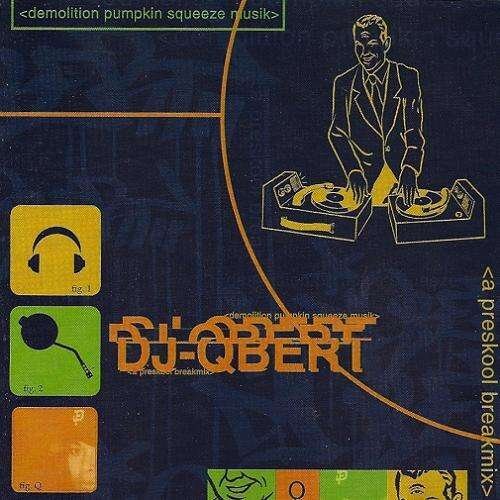
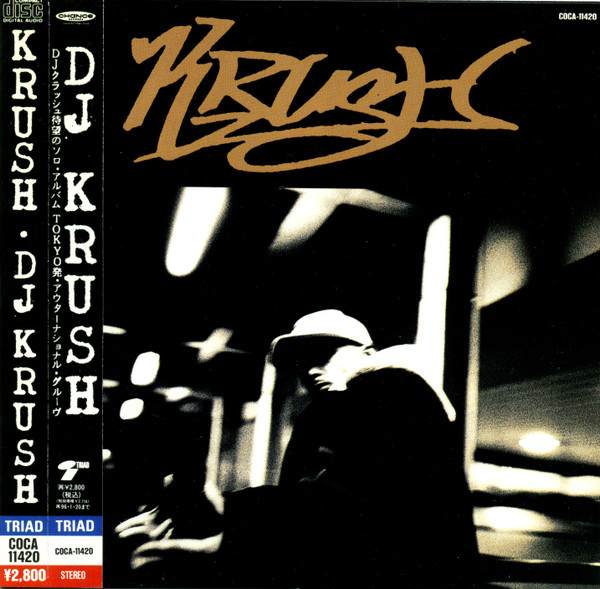
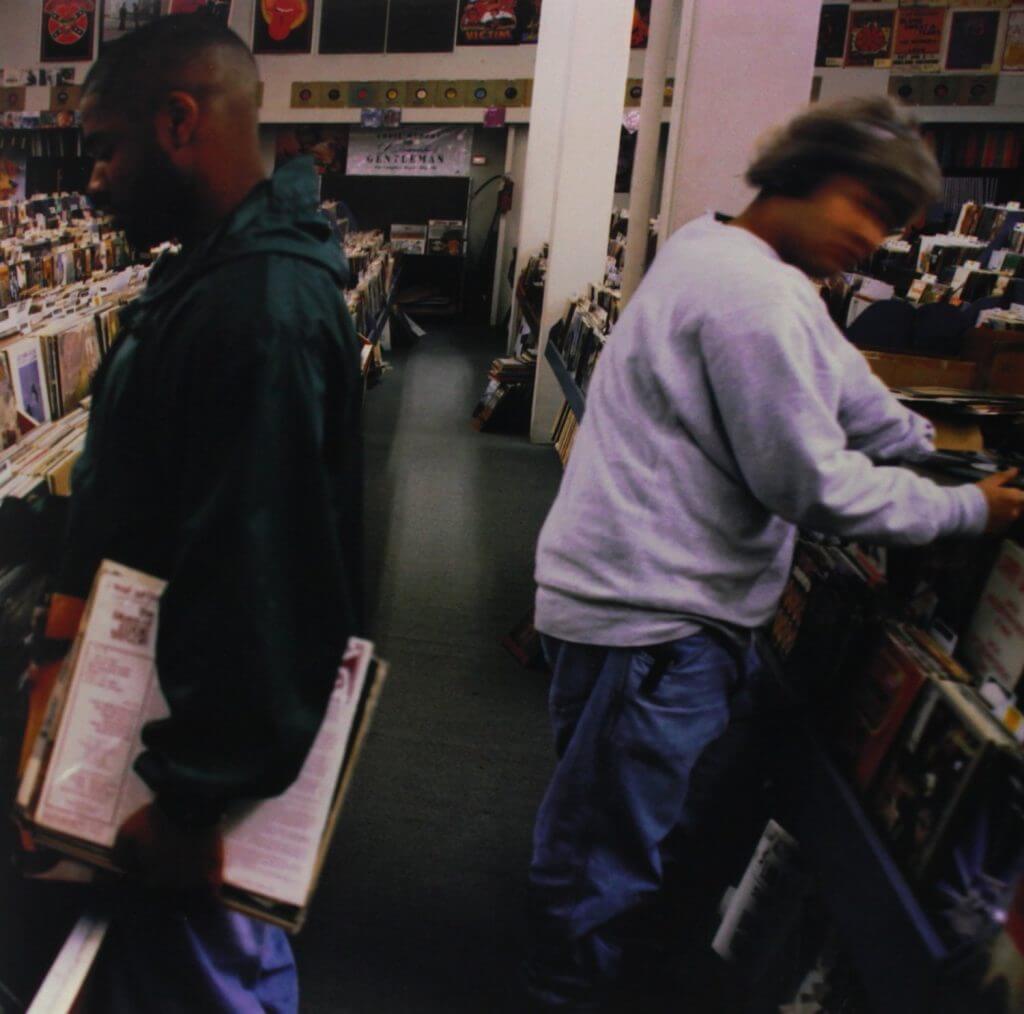
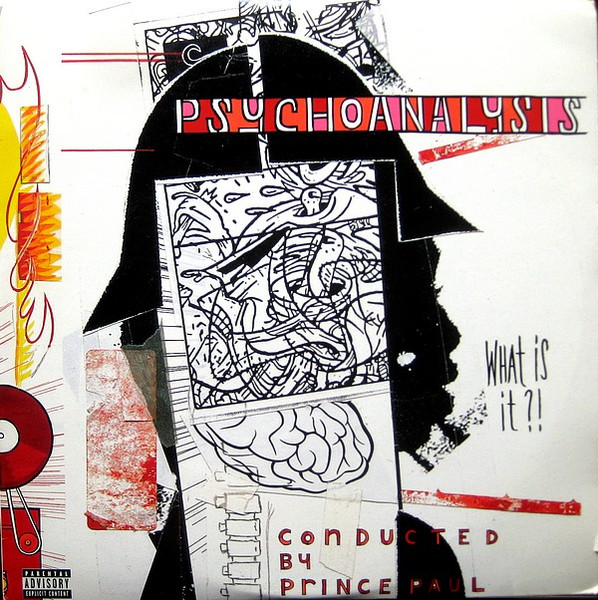
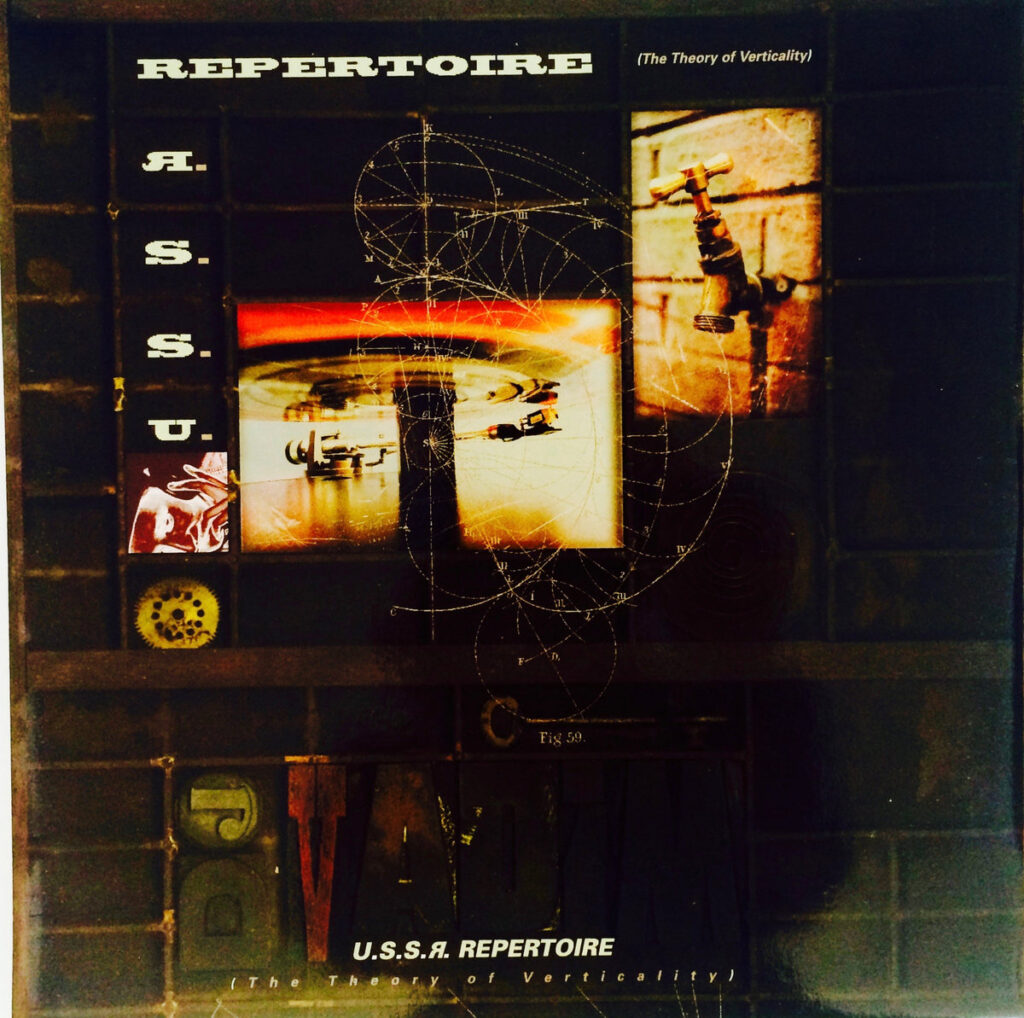
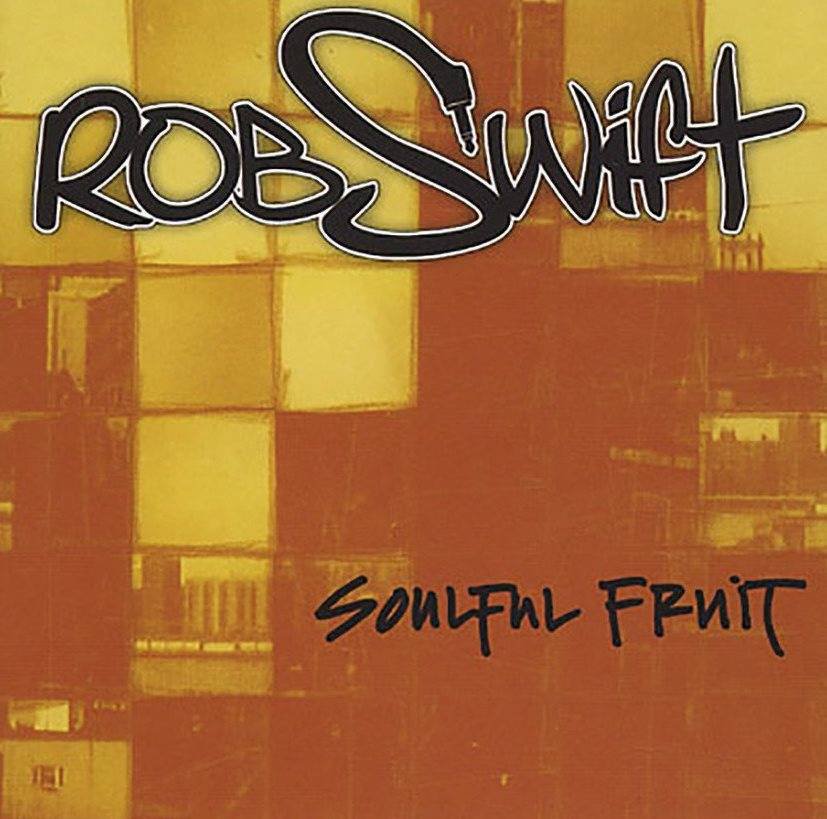
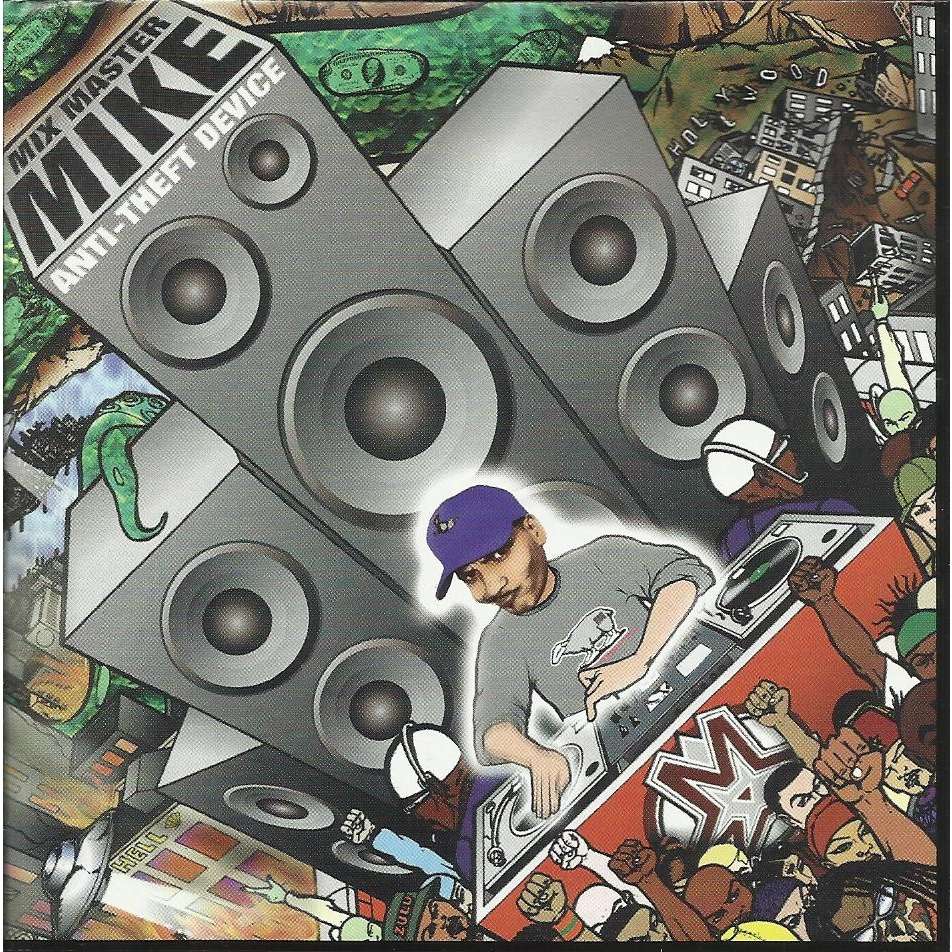
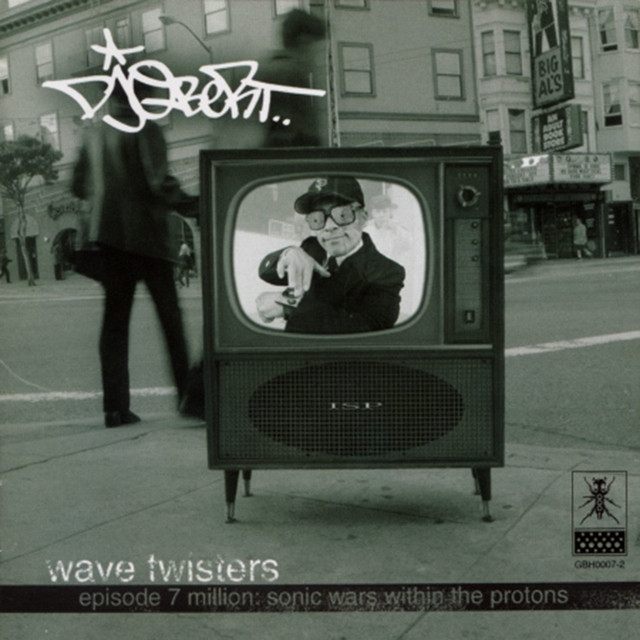
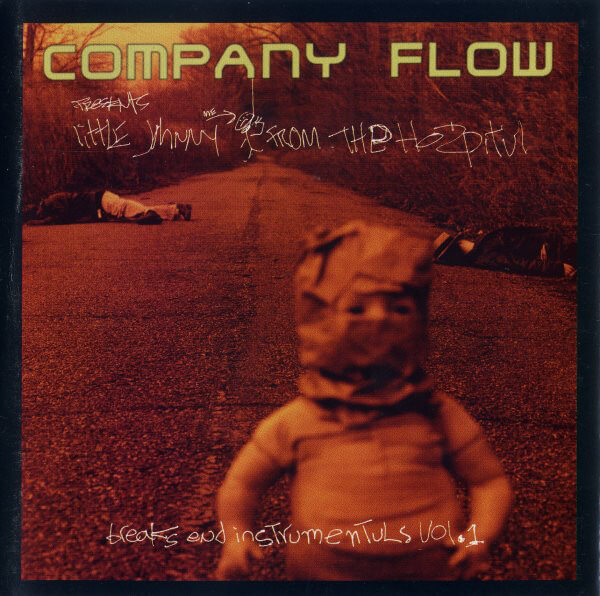
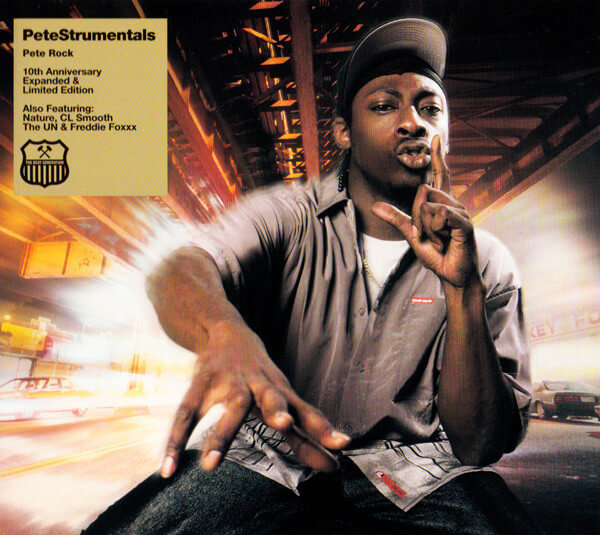
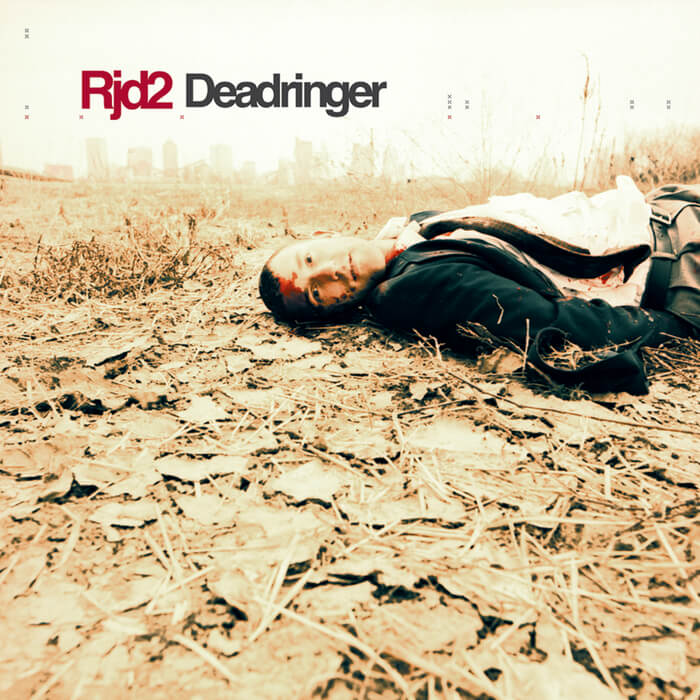
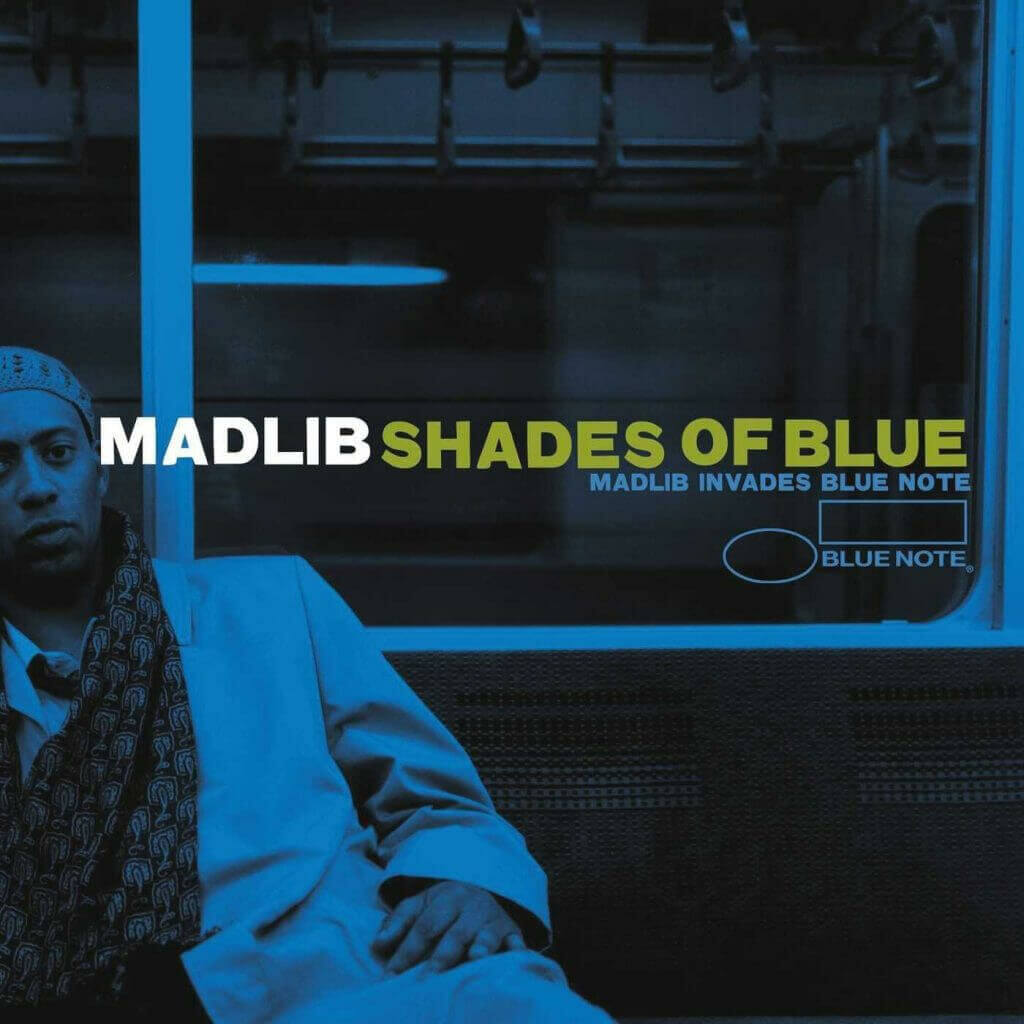
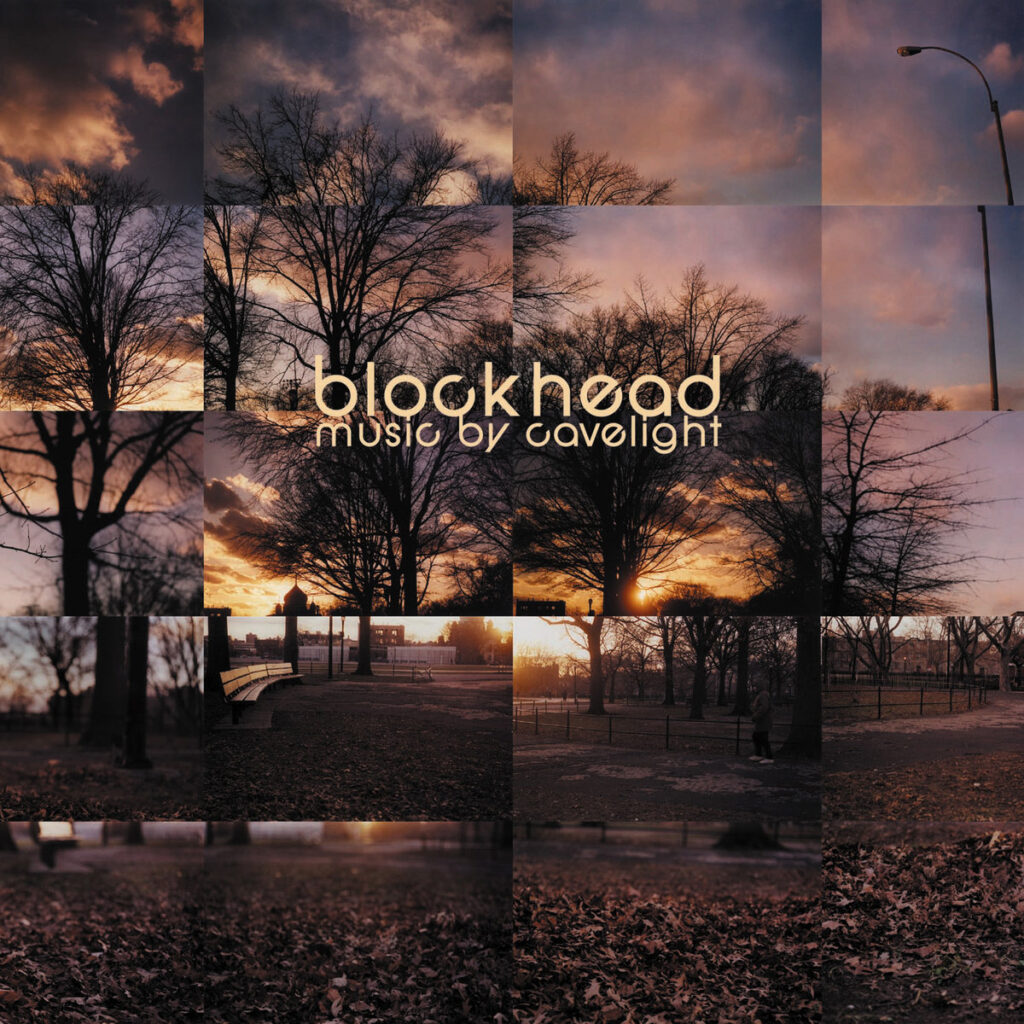
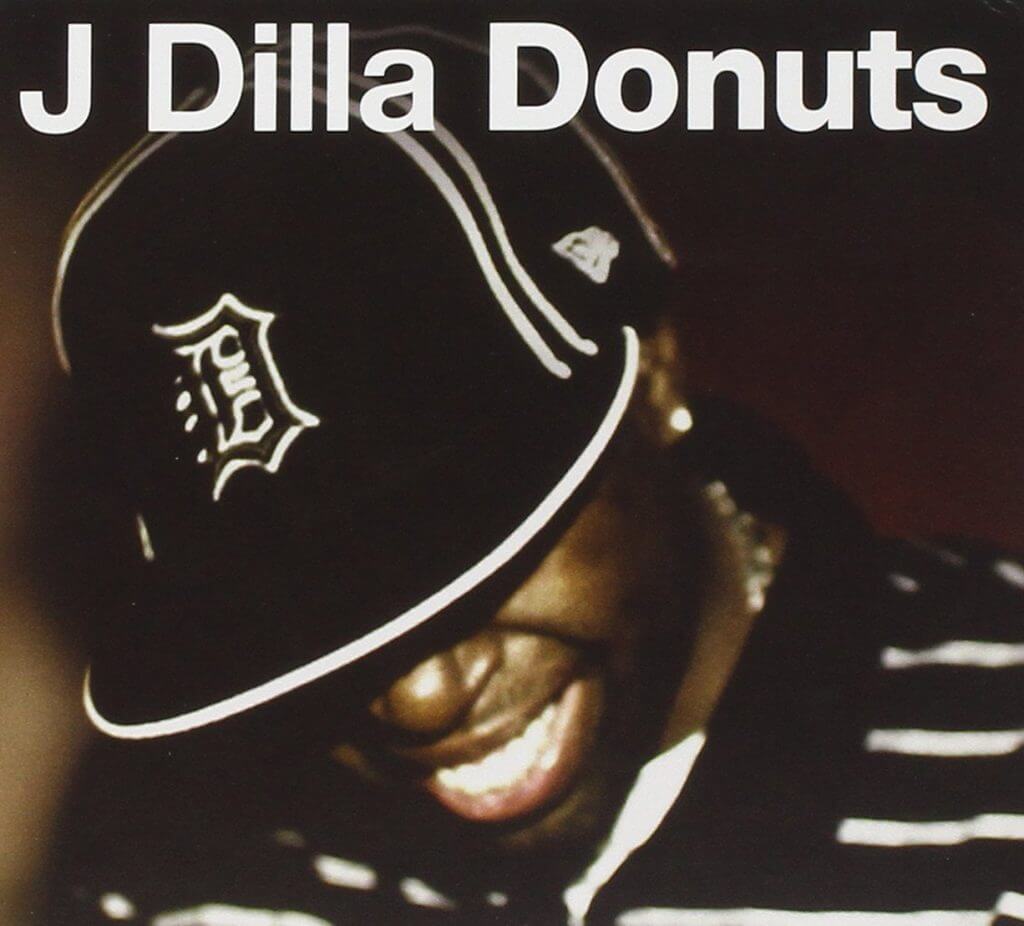
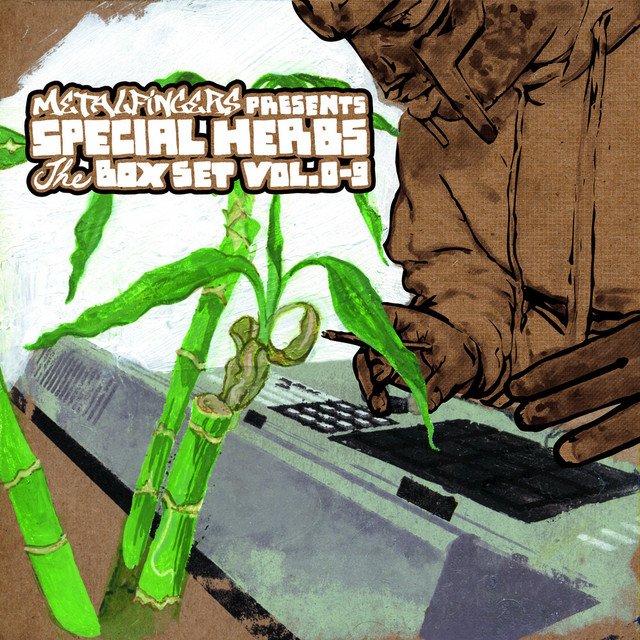

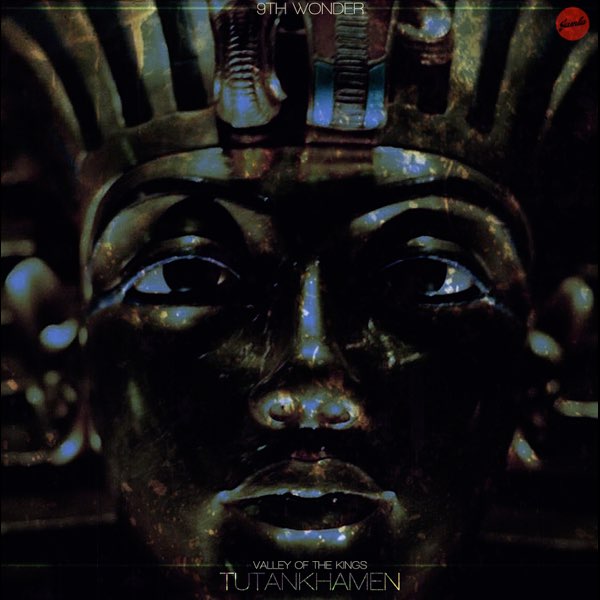
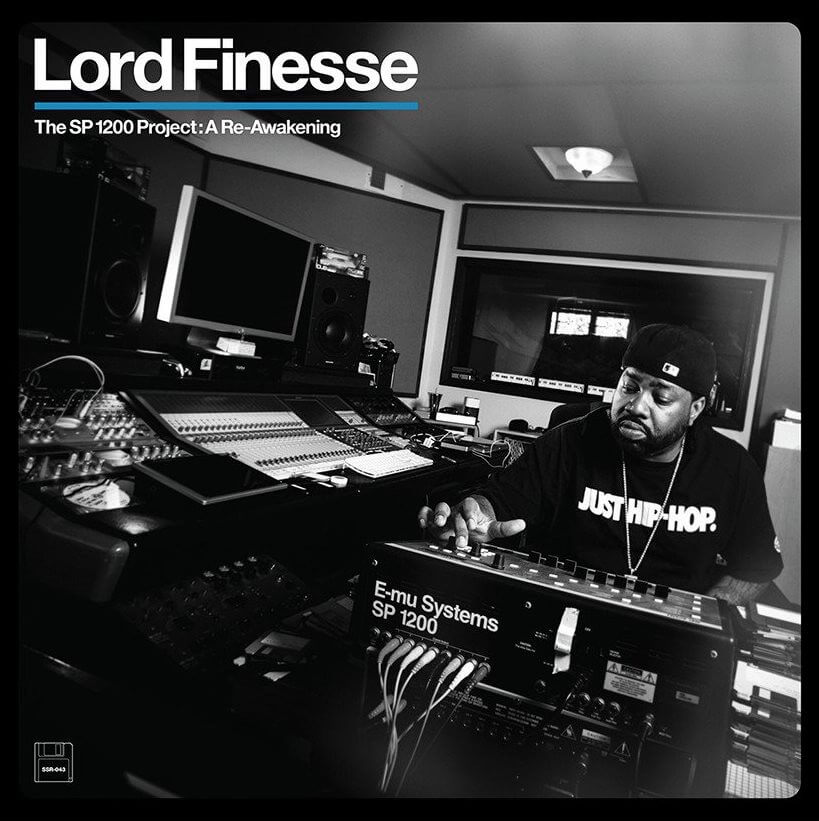
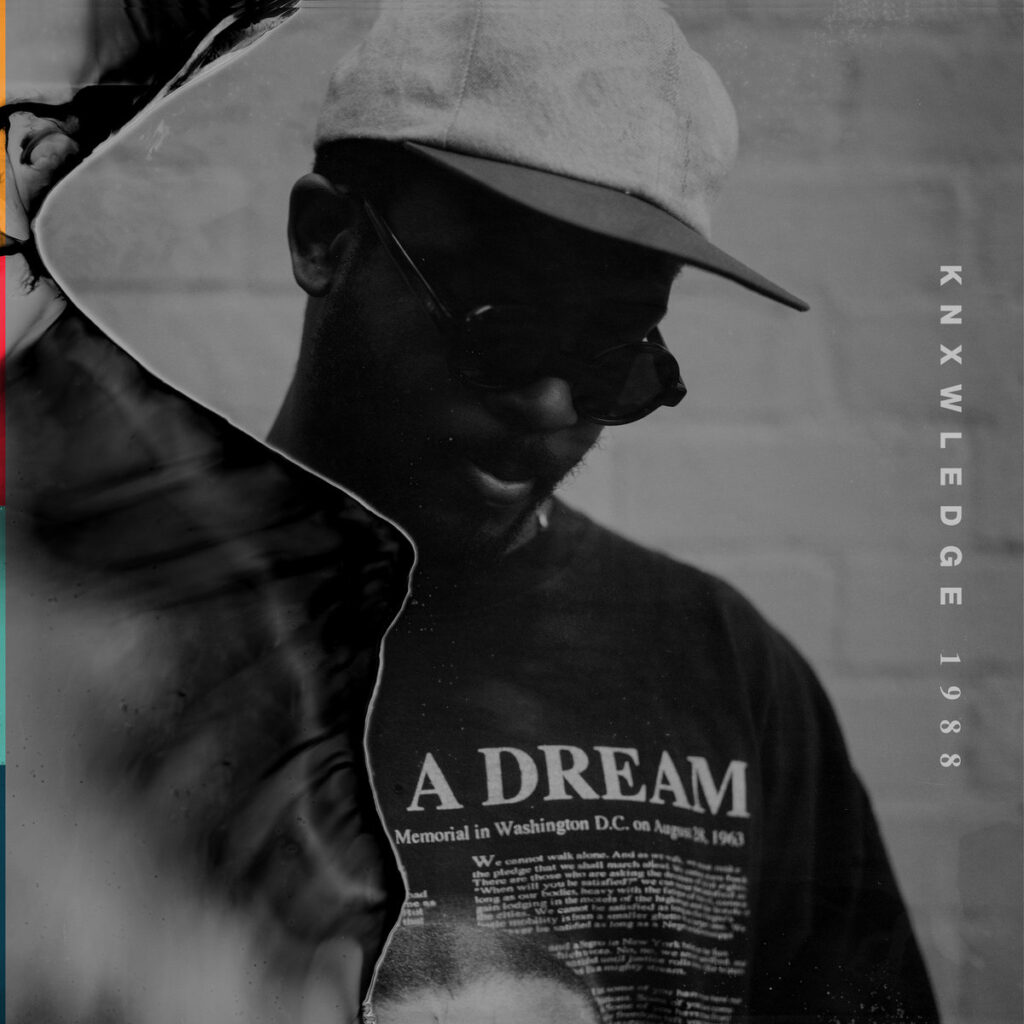
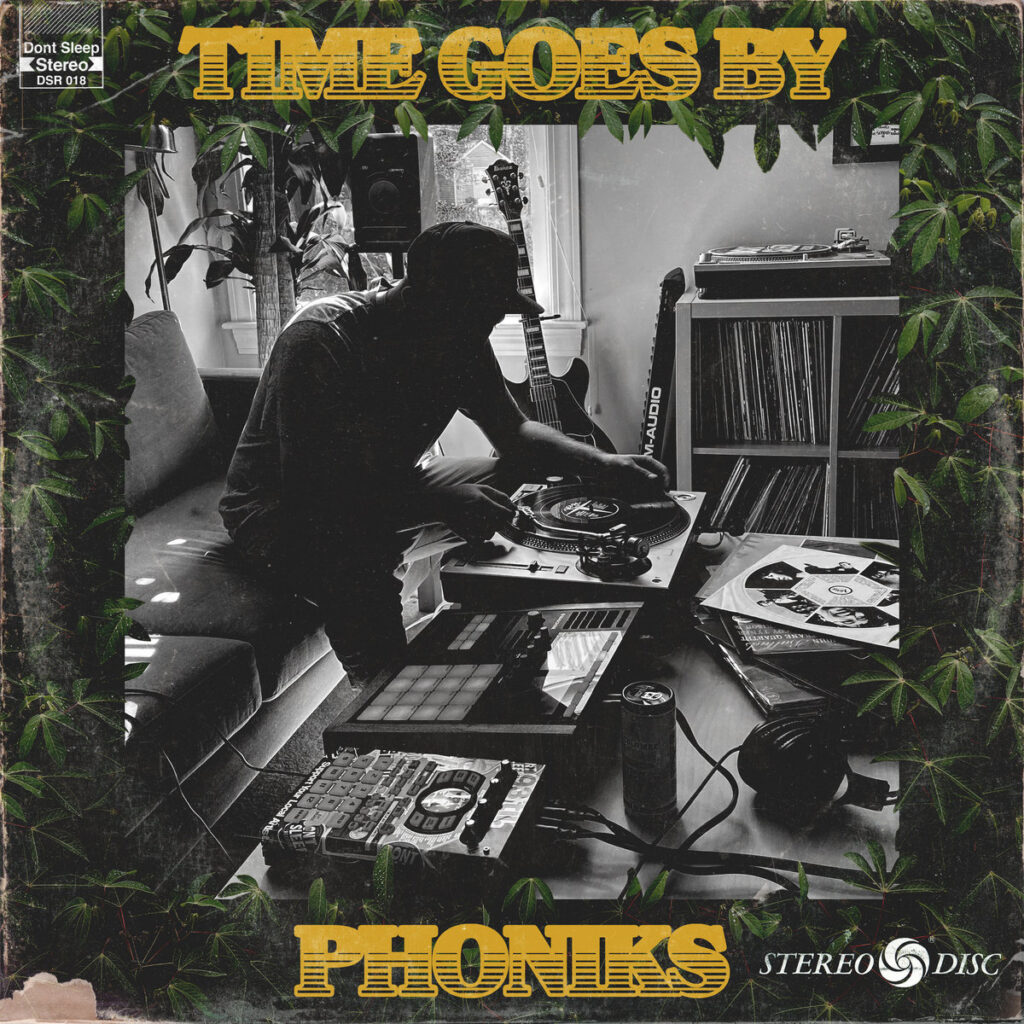
All nice instrumental albums indeed but shocked there’s nothing from Apollo Brown in that whole list. (Skilled Trade, Make Do, .38 and This Must Be The Place are all super dope instrumental works!)
As for typical abstract hh I would add to this list Dj Cam – Mad Blunted Jazz and very moody album from polish producer Noon – Bleak Output
Great selection as always! As painful to read as always also though, somewhere between a student’s essay and marketing material… If you cut all your articles and sentences by 50% and stop using “seamlessly”, “cemented”, “a testament to”, “pivotal” (about 50 times in another article), “listening experience”, “hailing from” and other advertisement adjectives all the time, we’ll be ok! Come on this is real Hip Hop not some Ikea catalogue! Keep it short guys and for the rest keep it up